Rabbana Ma Khalaqta Hadza Bathila Dua Meaning and Arabic
Advertisements
Rabbana ma khalaqta hadza bathila is a short Dua found in Surah Al Imran. In this post, we will be looking at the translation and meaning of this beautiful verse.
Rabbana Ma Khalaqta Hadza Bathila Meaning (Translation)
The translation of Rabbana ma Khalaqta in English is: Our Lord! You have not created this in vain. Glory to You! Save us, then, from the punishment of the Fire.
Rabbana Ma Khalaqta Hadza Bathila In Arabic
رَبَّنَا مَا خَلَقْتَ هَذا بَاطِلاً سُبْحَانَكَ فَقِنَا عَذَابَ النَّارِ
Transliteration
Rabbana ma Khalaqta haza bathila subhanaka faqina adhaban-Naar.
Advertisements
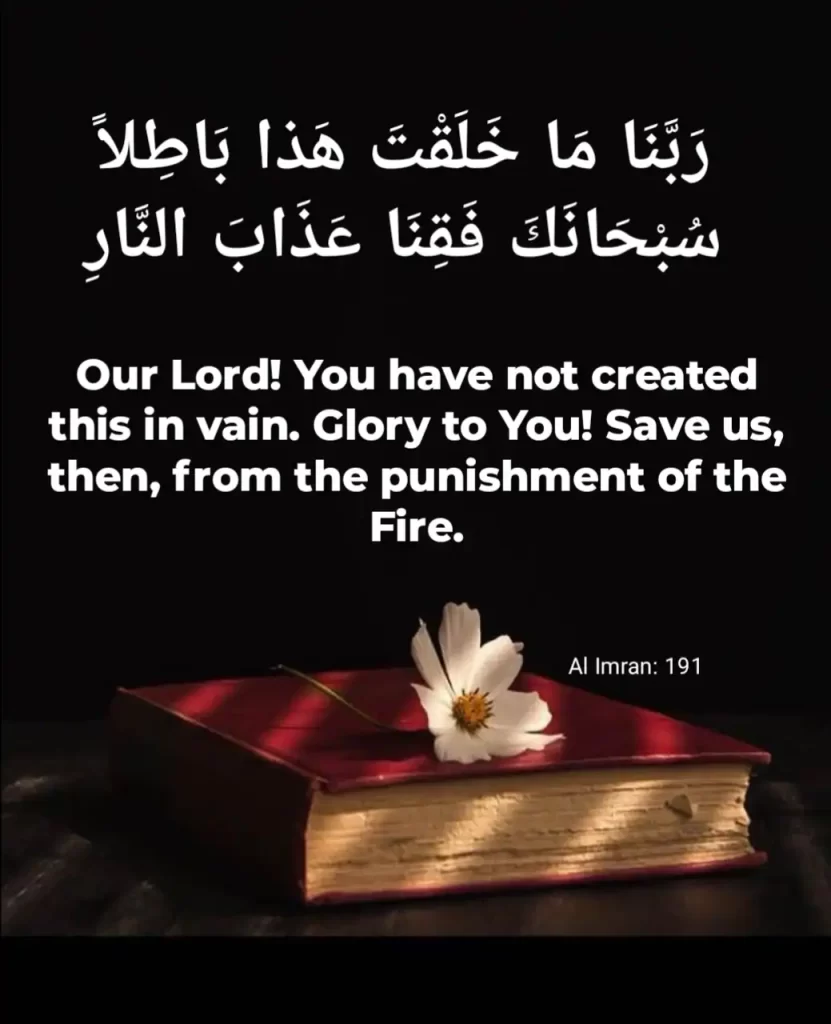
The Dua is in Surah Al Imran, verse 191.

Rabbana Ma Khalaqta Hadza Bathila Meaning
Our Lord, You have not created all this in vain, Glory be to You and exalted be You above all that is not befitting to Your Majesty; rather You created it in truth, for truth, and including truth.
We can clearly see that this is the outcome of pondering over the signs of Allah’s power.
It means that there is nothing purposeless in Allah’s creation. On the contrary, there are thousands of wise considerations behind it.
Things have been harnessed to serve human beings with man being the user of resources in the whole universe.
Advertisements
This should make human beings see that the universe has been created for their benefit and in their interest. Likewise, every human being has been created to obey and worship Allah. This is his or her purpose of life.
Further on, from verses 192 to 194, there appears a set of pleas and prayers from such people, people who realized that this universe is no exercise in futility and that is is brimming with open proofs of the great power and wisdom of its Creator.
So, once they knew their Creator and Sustainer, they submitted before Him.
- The first request they make is: Save us from the Fire.
Save us from the punishment of the fire by protecting us from doing bad deeds, and helping us to do righteous deeds, so that we might attain thereby salvation from the fire.
This is an implicit prayer for paradise, because, if Allah protects them from the punishment of the fire, they will attain paradise.
But as this fear is entrenched in their hearts, they call upon Allah referring to that which most concerns them.
- The second request is: Save us from the disgrace of the Hereafter for whoever is condemned to the Fire stands humiliated before the whole world.
Some scholars have said that humiliation on the plains of Ressurection will be so disgraceful a punishment that one would wish to be cast into the (fire of) Hell but that the multitudes present on that fateful day do not get to hear about his or her misdeeds.
- The third request is: ‘We have heard the message given by the herald sent by You, that is, the message of the Messenger of Allah SAW and we believed in him.
So, forgive our major sins and expiate our shortcomings and misdeeds and give us death in the company of the righteous, that is, make us a part of their group.
These three requests were aimed at safety against punishment and pain and loss.
- The fourth request is about promised blessings, the blessings of Paradise promised through the noble prophets.
This prayer for blessings is being made with the added request that there be no disgrace on the Day of Judgment.
In other words, the request is to be excused from the torturous procedure of accounting (for all of one’s deeds), disgrace (as a result of misdeeds) and then forgiveness (on account of Allah’s mercy).
The prayer is for outright forgiveness for Allah does not go back on His word. What is the purpose of this submission and re-submission?
The purpose is to say:
0 Allah, enable us to become deserving, and a beneficiary of this promise (made by You), and enable us to remain steadfast so that we breath our last in this world with faith in our heart and busy doing what is good in Your sight.
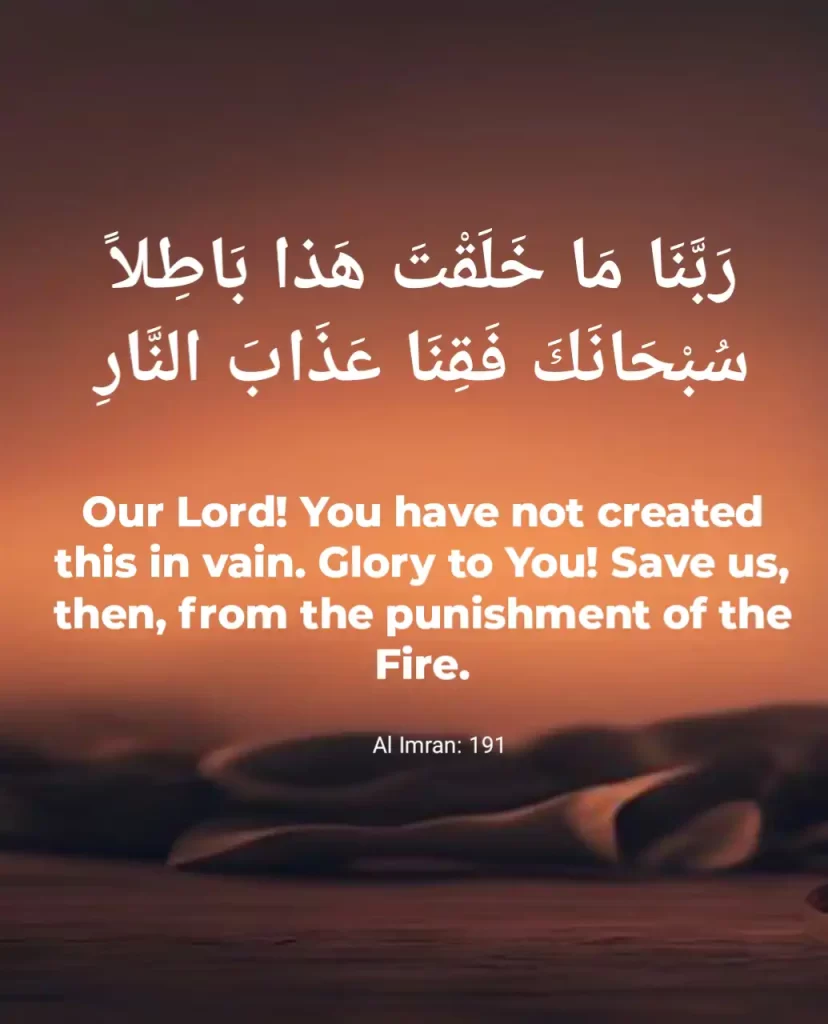
Let’s break down this beautiful dua (supplication) into a listicle format, highlighting its key elements and details:
1. Invocation to the Lord:
- The dua begins with a direct address to the Lord, acknowledging the Allah presence and authority.
- It reflects the believer’s connection with their Creator, seeking His mercy.
2. Recognition of Purposeful Creation:
- “Our Lord! You have not created this in vain.”
- This part of the dua expresses the profound belief in the purposeful creation of the universe by the Almighty.
- It signifies an understanding that everything in existence has a meaningful and intentional purpose.
3. Proclamation of Glory:
- “Glory to You!”
- The phrase “Glory to You” is a declaration of the greatness and perfection of the Creator.
- It emphasizes the transcendent nature of God, acknowledging His majesty and perfection.
4. Appeal for Salvation:
- “Save us, then, from the punishment of the Fire.”
- The supplicant seeks refuge and protection from the punishment of the Fire (Hell).
- This part reflects the believer’s awareness of their own shortcomings and sins, and their plea for divine mercy and forgiveness.
5. Implication of Accountability:
- The inclusion of a plea for salvation from the punishment suggests an awareness of accountability in the Hereafter.
- It signifies the belief in consequences for one’s actions and a desire for protection from negative outcomes in the afterlife.
6. Humility and Dependency:
- The act of seeking salvation demonstrates humility before the Creator.
- It acknowledges human vulnerability and dependence on God for guidance, forgiveness, and protection.
7. Comprehensive Nature of the Dua:
- The dua is comprehensive, addressing both the recognition of purpose in creation and the plea for salvation.
- It encapsulates a profound spiritual connection, encompassing gratitude, glorification, and a heartfelt appeal for mercy.
In summary, this dua beautifully combines gratitude, acknowledgment of purposeful creation, glorification of the Creator, and a humble plea for salvation.
It reflects the multifaceted nature of the believer’s relationship with God, encompassing both awe and a sincere desire for divine mercy and guidance.
Advertisements

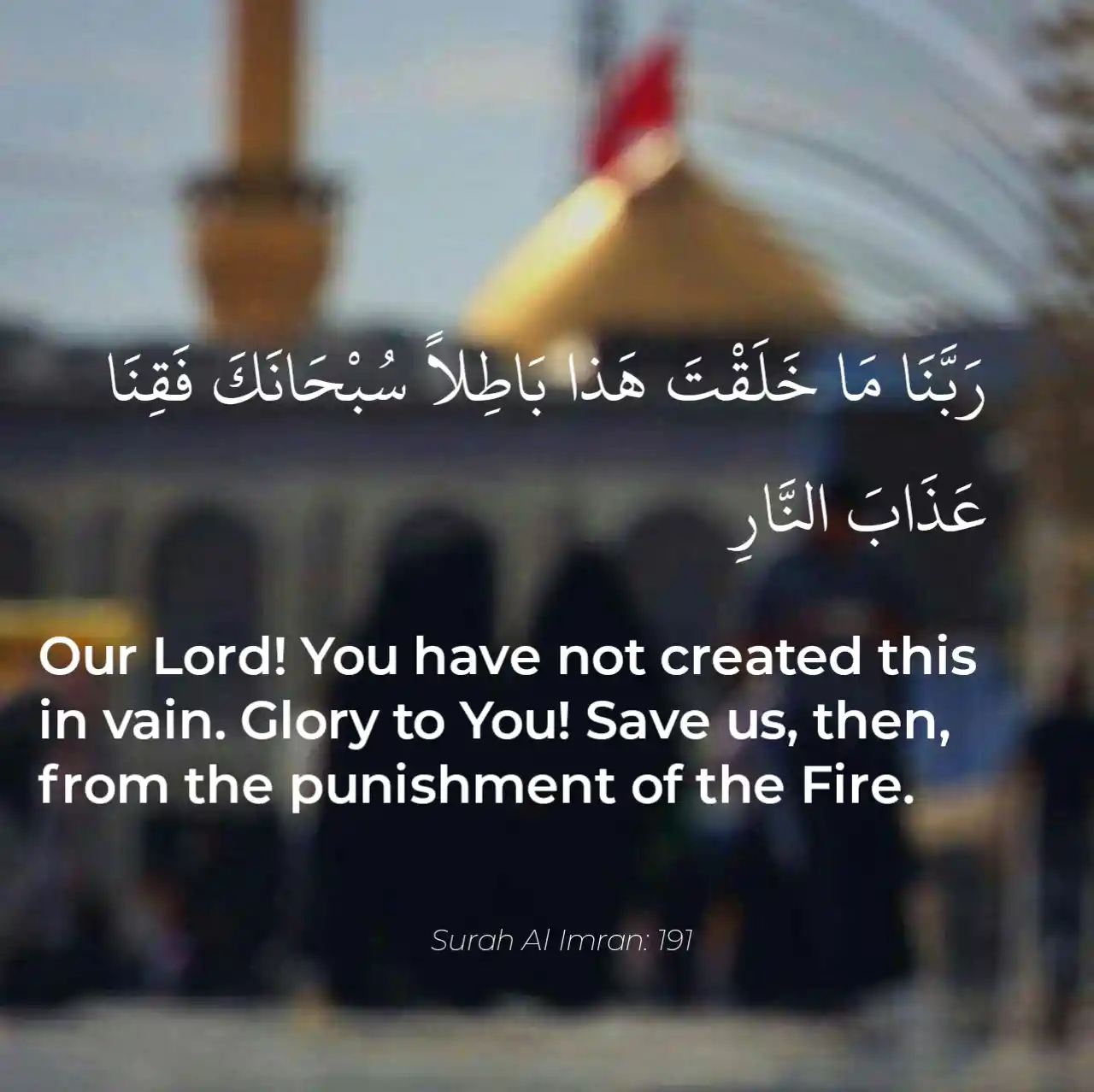
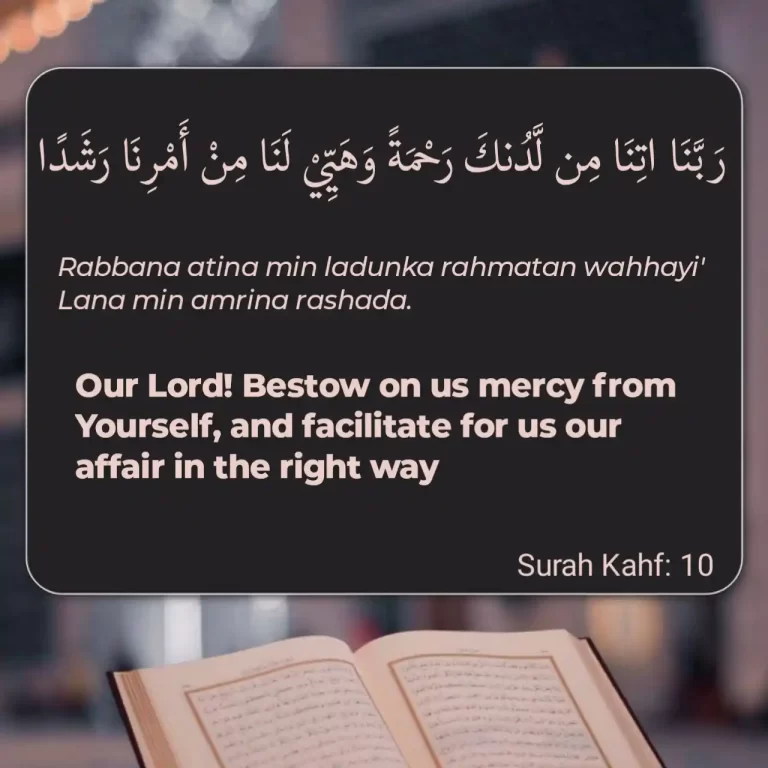
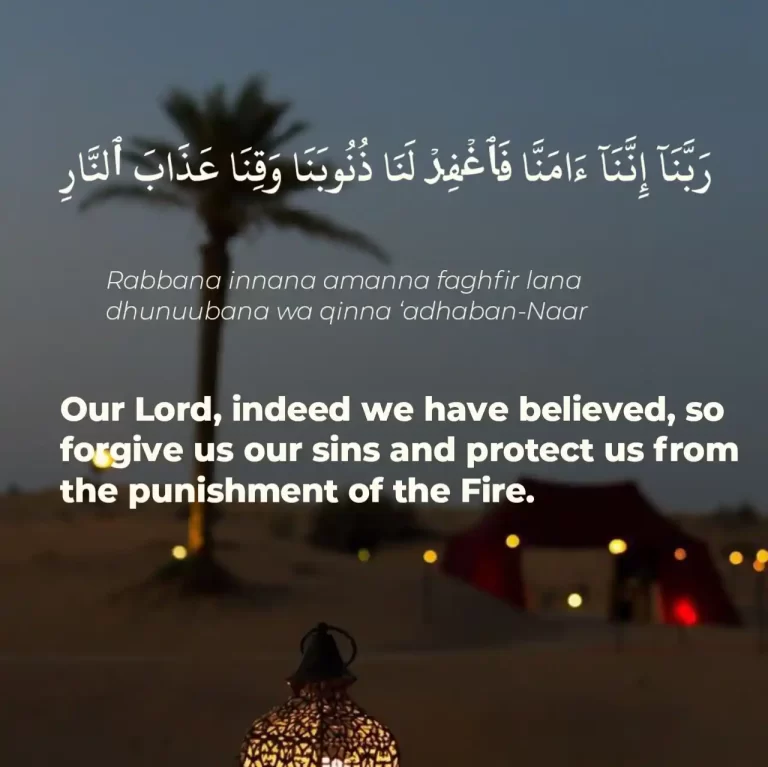
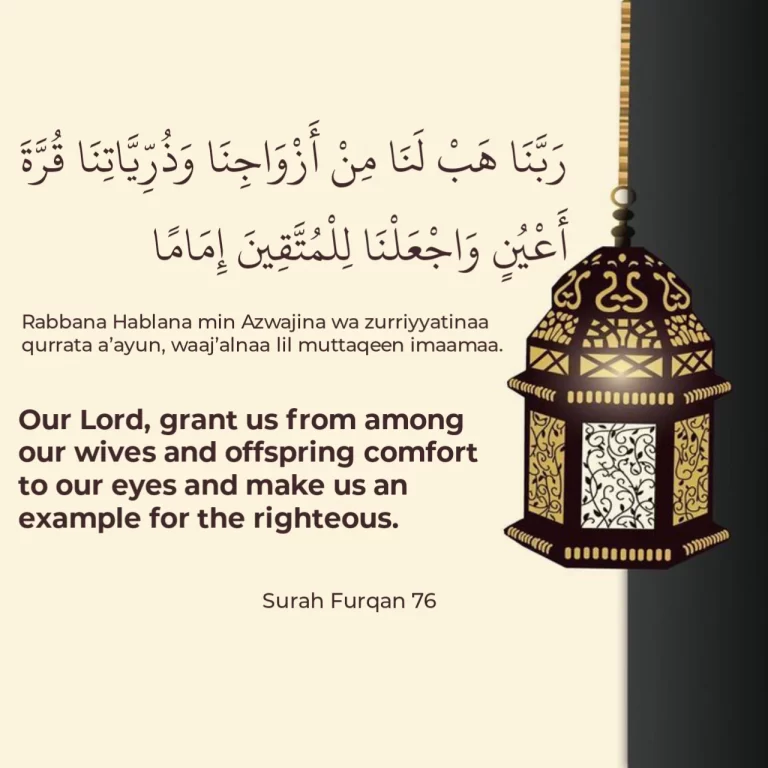
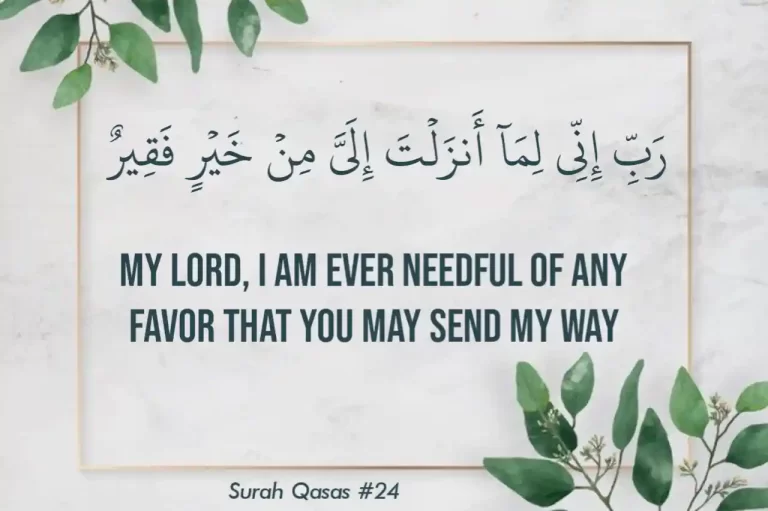
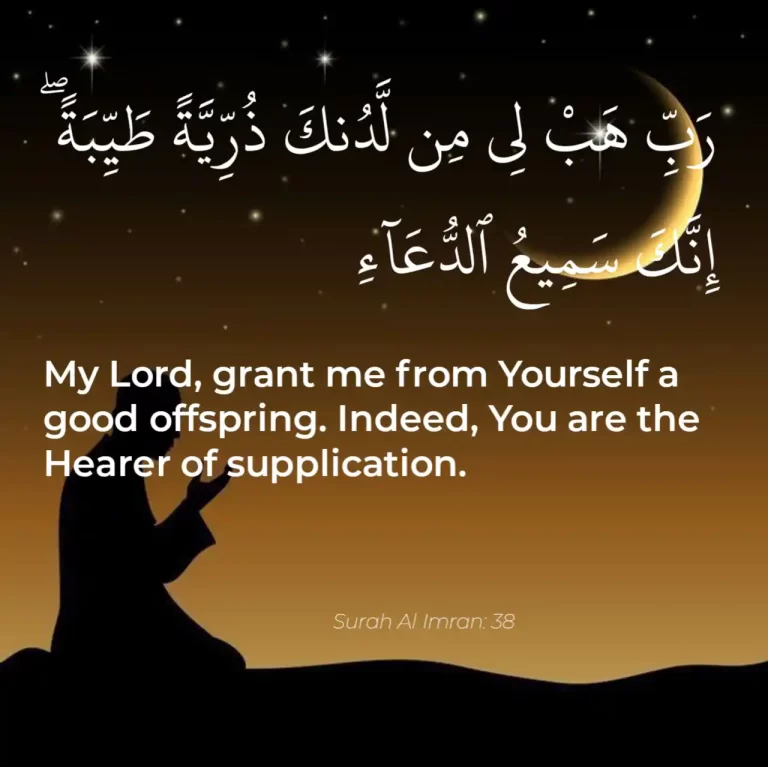
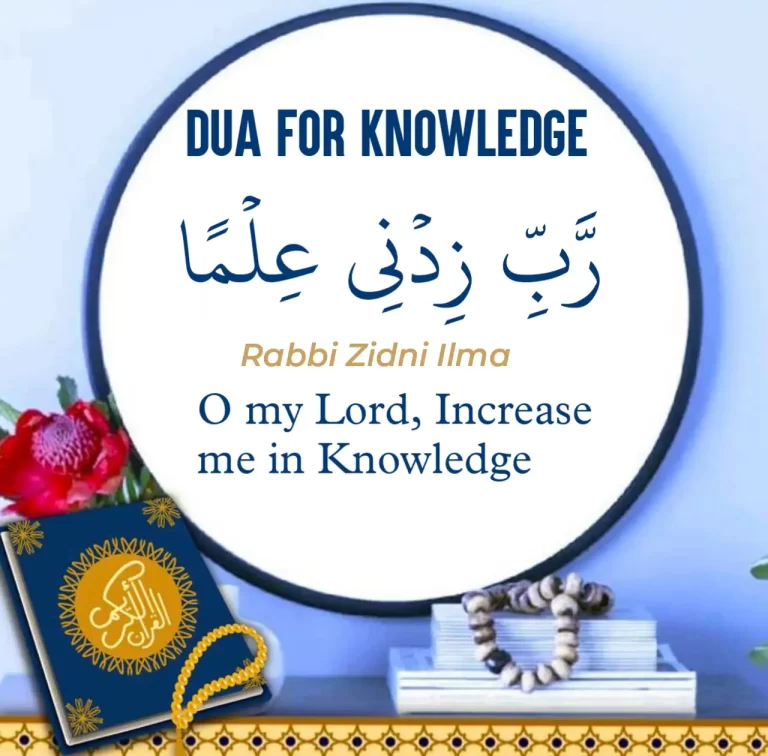
One Comment